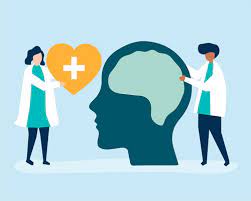Complex PTSD (CPTSD) is a condition that arises from prolonged exposure to repetitive trauma, often involving interpersonal abuse or neglect. It extends beyond the symptoms of post-traumatic stress disorder (PTSD) by including emotional dysregulation, difficulty maintaining relationships, and a persistent negative self-view. Addressing CPTSD requires a multifaceted approach. Interventional psychiatry has become a helpful framework for supporting individuals in their recovery.
Exploring Complex PTSD
CPTSD differs from traditional PTSD in its origins and manifestations. It is often the result of prolonged trauma that occurs during core developmental periods or within dependent relationships.
CPTSD symptoms can encompass emotional instability, avoidance, intrusive memories, and physical stress responses. Individuals may also encounter challenges managing shame, guilt, or social interactions. These complexities make CPTSD distinct, requiring tailored treatments that address deeper layers of psychological and emotional trauma.
Interventional Psychiatry
Interventional psychiatry integrates advanced approaches like psychotherapy, pharmacology, and complementary treatments to address mental health conditions, including CPTSD. It applies evidence-based techniques to meet the specific needs of individuals coping with complex conditions. This field aims to reduce trauma-related symptoms, foster emotional healing, and promote long-term reintegration into social and personal spheres.
Addressing CPTSD
CPTSD treatment often necessitates a combination of methodologies to provide relief and foster recovery. Here are the primary components of interventional psychiatry for CPTSD:
Psychotherapy
Psychotherapy, or talk therapy, is a fundamental tool in addressing CPTSD. Modalities such as cognitive-behavioral therapy (CBT) and eye movement desensitization and reprocessing (EMDR) focus on helping individuals reframe their experiences and adopt healthier coping mechanisms.
These therapies offer safe spaces to process trauma, identify patterns in thought and behavior, and reduce emotional reactivity over time.
Medication
Medications are often incorporated as part of a comprehensive treatment plan to alleviate severe symptoms associated with CPTSD. Selective serotonin reuptake inhibitors (SSRIs), mood stabilizers, or antipsychotics may help manage depression, anxiety, or emotional instability.
Psychiatrists collaborate closely with patients to monitor medication efficacy and adjust dosages as needed, making sure that pharmaceuticals complement therapeutic progress.
Supporting Treatments
Supporting treatments, such as mindfulness-based techniques, group therapy, and biofeedback, are helpful for managing stress responses and building resilience.
These approaches aim to stabilize an individual’s physical and emotional state, making it easier to engage with direct trauma processing therapies.
For instance, mindfulness practices may enhance emotional self-awareness, while group therapy creates environments that foster shared understanding and mutual support.
Addressing Co-occurring Conditions
CPTSD frequently overlaps with conditions such as depression, substance abuse, or general anxiety disorder. Effective treatment strategies in interventional psychiatry require addressing these co-occurring issues to prevent them from complicating recovery.
Integrated care approaches make sure that all elements of an individual’s mental health are targeted simultaneously, enabling sustainable progress.
By prioritizing a comprehensive and individual approach, recovery from CPTSD becomes attainable, fostering resilience and long-term mental well-being.
Learn More About Interventional Psychiatry
Interventional psychiatry is a key framework for addressing the complexities of CPTSD. It offers a range of therapies and tools to help individuals regain emotional stability and achieve long-term recovery.
Understanding its strategies and applications provides valuable insight into the possibilities for managing and overcoming the effects of trauma. If you’d like to explore interventional psychiatry further or learn how it could help you or someone you know, contact a qualified professional.
Related Articles
The Role of Gynecology in Preventive Care for Women
How an Emergency Dentist Can Treat Sudden Tooth Pain
How Cataract Surgery Benefits Seniors
The Importance of Physical Activity in Long-Term Weight Loss





